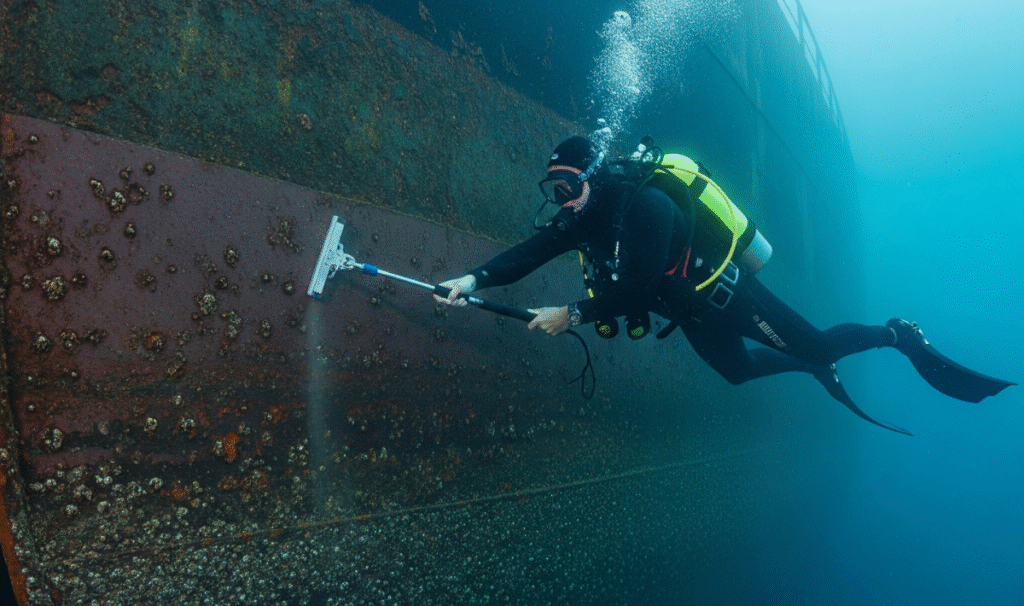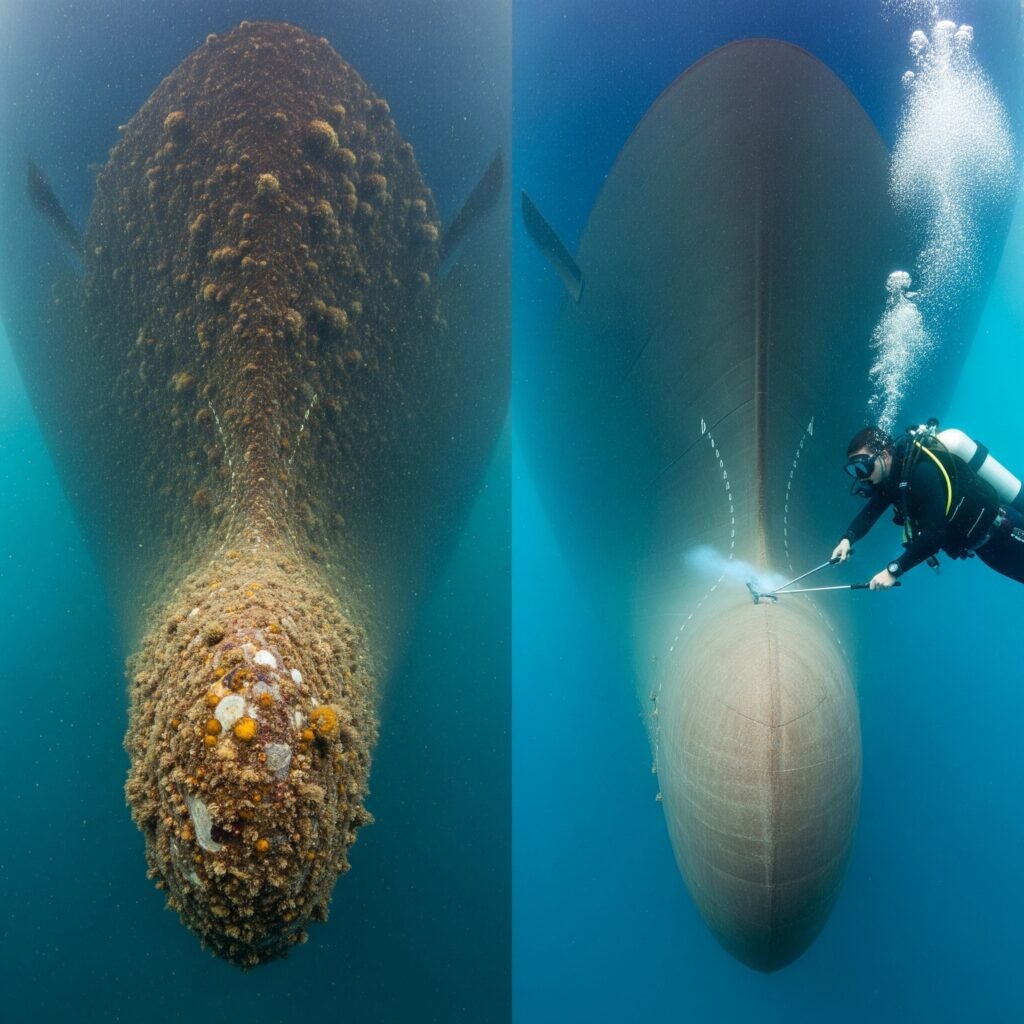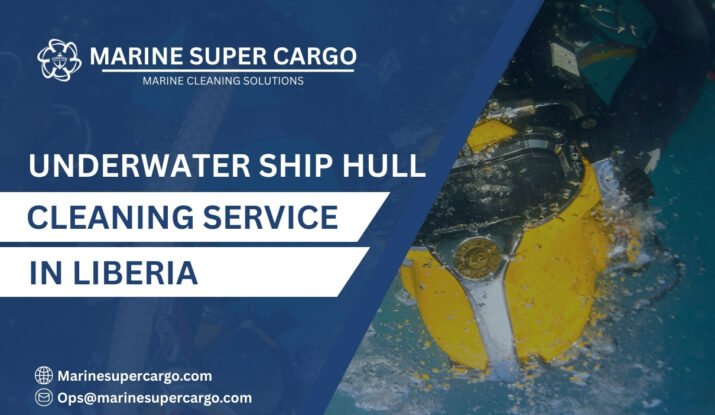Imagine your vessel gliding into the bustling port of Monrovia, the hull slicing through salty blue waters, cargo loaded, and the horizon clear ahead. But what’s clinging just out of sight below the waterline? Barnacles and algae are stealthily slowing you down, siphoning fuel, and even threatening harsher repairs. That’s where underwater ship hull cleaning in Liberia becomes much more than just another maintenance task—it’s your ticket to operational efficiency, slimmer costs, and an enviable environmental record.
Liberia’s coastline is more than a scenic stretch on the map—it’s the artery of West Africa’s thriving shipping scene. Safe passage means attention to every detail, especially what you can’t see. Underneath every voyage is a hidden challenge: biofouling. Let’s dive deep into why underwater ship hull cleaning in Liberia matters and the measurable benefits it brings to your fleet.
Why Underwater Ship Hull Cleaning in Liberia Deserves Your Attention
Meet the Silent Stowaways: Understanding Biofouling
It starts as a film, then a stubborn garden of shell, weed, and microbial life. Ships working in Liberia’s tropics face year-round biofouling—thanks to nutrient-rich, warm waters perfect for marine hitchhikers. Left unchecked, this build-up sneaks fuel costs higher and puts the vessel’s health at risk, all while remaining invisible from the docks.
The Cost of Neglect in Liberia’s Warm Coastal Waters
Ignore cleaning and you’ll pay the price. It’s not just sluggishness in water—biofouling causes higher emissions and makes the vessel a slowpoke on tight schedules. With international shipping contracts at stake, time truly is money—and skipping underwater ship hull cleaning in Liberia can mean escalating operational headaches.

Improved Fuel Efficiency and Lower Operational Costs
Slime, Speed, and Your Bottom Line
Think of biofouling as your ship dragging a fishing net—fuel burn surges, engines labor, and every mile costs more. Studies (including those cited by imo.org) show clean hulls can slash fuel consumption by up to 15%! When every barrel counts in the competitive world of shipping, that’s thousands of dollars saved after each clean.
Case Study: Real Numbers from the Liberian Coast
A bulk carrier trading between Monrovia and Europe saved over 12% in fuel after a comprehensive underwater ship hull cleaning in Liberia. Over six months, that translated to tens of thousands in direct fuel savings—money that went back into operations instead of wasted on drag-induced inefficiency.
Prolonged Hull Life and Asset Protection
Fighting Corrosion: More Than Just Soap and Water
Biofouling does more than slow a ship—it traps moisture and harmful microbes against the metal, leading to corrosion and rapid degradation. Regular underwater ship hull cleaning in Liberia helps maintain anti-fouling coatings and keeps corrosion at bay, protecting a ship’s value for the long term.
Minimizing Unplanned Repairs and Drydock Stays
Every hull cleaning is a chance to inspect for damage. Divers and technicians spot early signs of wear, cracked coatings, or corrosion that require attention before small issues spiral into expensive surprises. You’ll spend less time and money in dry dock with regular underwater ship hull cleaning in Liberia.
Environmental and Legal Compliance
How Liberia Aligns with MARPOL and IMO Standards
Liberia is one of the world’s largest ship registries and upholds international norms. Underwater ship hull cleaning in Liberia—done right—prevents unnecessary pollution and stops the spread of invasive species. Using MARPOL and IMO-aligned practices means avoiding expensive fines, delays, or international blacklists.
Cleaner Hull, Greener Reputation
Eco-friendly cleaning isn’t just good for the sea—it’s a selling point for charterers and partners. Showcasing a commitment to underwater ship hull cleaning in Liberia signals your fleet’s seriousness about green credentials and modern risk management.
Best Practices: How Underwater Ship Hull Cleaning Works in Liberia
Diver-Based Techniques vs. Robotic Innovations
Traditionally, skilled divers with brushes, scrapers, and underwater vacuums manage the bulk of the cleaning, all while watching for weaknesses in the hull. Increasingly, underwater robots and ROVs (remotely operated vehicles) join the scene, making underwater ship hull cleaning in Liberia quicker, safer, and often more thorough thanks to cameras and data logging systems.
Eco-Friendly and Responsible Waste Handling
Waste management is crucial. The best teams in Liberia use closed-circuit systems to capture biofouling and chemicals before they can drift away, disposing of them safely ashore. Not only does this align with global guidelines (Marine Insight – MARPOL Convention), but it also keeps Liberia’s harbours and coast pristine.

Choosing the Right Hull Cleaning Team in Liberia
Key Certifications, Training, and Local Knowledge
Look for IMCA-certified crews (imca-int.com), IMO and MARPOL compliance, and proven experience in both Liberia’s main ports and trickier spots along the coast. Ask about incident response, before-and-after documentation, and customer reviews for assurance.
The Future: Modernizing Underwater Ship Hull Cleaning in Liberia
Smart Scheduling, Digital Inspections, and Green Practices
Imagine scheduling cleanings with AI-generated performance reports or deploying drones for routine hull scans. That future isn’t far off in Liberia. The push for sustainable shipping means more fleets will embrace regular underwater ship hull cleaning in Liberia, combining digital tracking with smarter, faster, and greener methods.
Conclusion
To sum up: clean hulls don’t just shine brighter—they deliver real savings, safeguard assets, and keep vessels compliant with ever-tightening rules. As Liberia’s ports rise in global importance, adopting underwater ship hull cleaning in Liberia is no longer optional—it’s strategic. By partnering with specialists like cleanship.co, shipowners ensure efficiency, sustainability, and a competitive edge. Choosing responsible hull maintenance is how you step forward as a leader, not a laggard, in Africa’s evolving maritime landscape—protecting both your fleet’s future and Liberia’s seas.
FAQ:
Q1. How often should underwater ship hull cleaning in Liberia be scheduled?
Every 6–12 months, depending on traffic, route, and observed biofouling buildup. More frequent cleaning means bigger long-term savings.
Q2. Can robotic hull cleaning be used in Liberian ports?
Yes, more providers are using ROVs and hull-cleaning robots, especially for larger vessels or high-fouling areas.
Q3. Is eco-friendly waste disposal standard practice for hull cleaning in Liberia?
The best providers use closed-loop debris capture and follow MARPOL-compliant disposal, protecting local water quality and global reputation.
Q4. How does hull cleaning help shipowners stay legal in Liberia?
It ensures compliance with national rules, IMO, and MARPOL regulations—reducing risk of fines or vessel detentions.
Q5. Can hull cleaning extend vessel life?
Absolutely. By stopping corrosion and keeping coatings in top shape, regular underwater ship hull cleaning in Liberia greatly extends a ship’s operating life and value.


